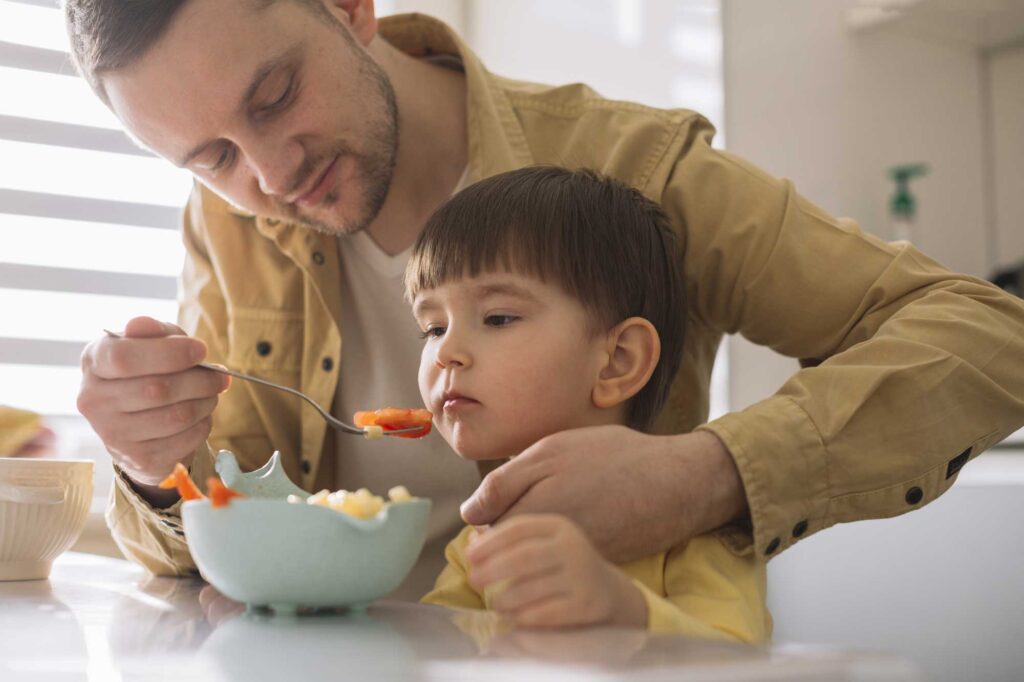
In today’s fast-paced world, families often struggle to balance work, technology, and traditional parenting roles, leaving them feeling overwhelmed and disconnected. However, there is a transformative approach to overcome these challenges. Master Conscious Parenting offers a practical, evidence-based guide to reconnect with your children while creating a nurturing and mindful home environment. This article explores how conscious parenting empowers you to handle daily challenges, build stronger bonds, enhance communication, and encourage a healthier lifestyle. Join us as we reveal four essential steps to transform your family dynamic through authenticity and empathetic love.
Understanding Conscious Parenting
Conscious parenting is a profound approach to raising children that goes beyond discipline and conventional rules. It means being fully present, attuned, and responsive to the emotions and needs of both children and parents. This philosophy emphasizes mindfulness, empathy, and personal growth, encouraging parents to serve as both nurturers and role models.
The essence of conscious parenting lies in developing self-awareness and understanding how your own emotional patterns influence your interactions with your children. It is about creating a deep connection that honors the individuality of each family member while building an environment of support and love. This flexible method adapts to the evolving needs of modern families, making it especially relevant in today’s hectic world.
Studies in developmental psychology and neuroscience reveal that mindful parenting significantly reduces stress and conflict within the home while enhancing overall emotional well-being. By adopting this approach, parents nurture a harmonious family unit and encourage the development of resilient, confident, and emotionally intelligent individuals.
Step 1: Cultivating Self-Awareness

The first step in conscious parenting is understanding yourself. Cultivating self-awareness means reflecting on your upbringing, beliefs, behaviors, and triggers. Recognizing your internal dialogue can transform how you respond to challenging situations with your children. Self-awareness is the cornerstone of mindful parenting, allowing you to understand how your past shapes your present.
When parents invest time in processing their emotions, they are better equipped to offer a calm and nurturing presence. Techniques like meditation, journaling, or mindful reflection can help identify stressors and habitual patterns. Understanding your own responses reduces the risk of projecting them onto your children and fosters healthier, more compassionate relationships.
Many parents have experienced transformative growth through therapy or coaching, shifting from reactive to responsive parenting styles. By taking the effort to truly know yourself, you not only enhance your emotional well-being but also set a powerful example for your children, teaching them the importance of introspection and personal growth.
Reflection Techniques
Engage in daily journaling to track your thoughts and emotional reactions, highlighting patterns that may affect your parenting negatively.
Explore meditation and deep breathing exercises to create space for contemplation and effectively reduce stress.
Seeking Professional Guidance
Consider therapy or counseling to gain insights into your childhood and resolve issues that may influence your behavior today.
Participate in workshops and support groups to share experiences and learn new strategies from other parents.

Step 2: Emotional Regulation and Empathy
After building a foundation of self-awareness, the next step is managing your emotions and developing empathy. Emotional regulation involves handling your feelings effectively so you can respond calmly to your child’s needs. Recognizing emotional triggers and learning self-soothing techniques helps avoid impulsive reactions.
Empathy—genuinely understanding your child’s feelings and experiences—is crucial for forming a strong bond. It allows you to validate their emotions and guide them through challenges with understanding rather than judgment. Emotional regulation coupled with empathy fosters an environment where open communication and mutual respect flourish.
Practical steps include pausing before responding, practicing reflective listening, and using affirming language to show your full presence in conversations. Parents who master these techniques often witness fewer power struggles and greater cooperation within the family.
Techniques for Emotional Management
Mindfulness meditation and deep breathing exercises help manage sudden emotional surges.
Cognitive behavioral strategies can help reframe negative thoughts during challenging moments.
Cultivating Empathy
Practice active listening by giving your child undivided attention and validating their feelings.
Model empathetic behavior in everyday interactions to show that all emotions are accepted and understood.

Step 3: Setting Clear Boundaries
Establishing clear and respectful boundaries is essential to help children feel secure and understand expectations. In conscious parenting, boundaries are not strict limitations but helpful guidelines that promote safety, self-discipline, and respect. Clear boundaries nurture confidence and responsibility by defining acceptable behaviors.
Explaining these limits with love and consistency empowers children to thrive. When rules are created empathetically and communicated clearly, children learn the value of self-regulation and mutual respect within the family. This balanced approach allows creativity and freedom to coexist with essential discipline.
Parents can involve children in discussions about household rules to foster ownership and accountability. Regular family meetings to revisit and adjust these boundaries ensure that they continue to align with the evolving needs of every family member.
Establishing Family Rules
Collaborate with your children to create a family charter that outlines shared values and rules, instilling accountability.
Make sure all rules are clear, fair, and consistently applied.
The Importance of Consistency
Consistent enforcement of boundaries reassures children and reinforces the importance of these rules.
Discuss both consequences and rewards openly to ensure that every family member understands the guidelines.
Step 4: Building a Supportive Home Environment
The final step in mastering conscious parenting is creating a nurturing, supportive home environment. A healthy family space is built on trust, respect, and love. In today’s digital age, dedicating time to family activities, fun, and relaxation can be transformative. A supportive environment is the foundation for positive interactions.
Encourage regular family rituals such as shared meals, weekend outings, or storytelling sessions. These moments create lasting memories and strengthen bonds. Ensure that every family member feels heard, valued, and understood. Designing a supportive space involves offering safe areas for emotional expression and open dialogue.
Investing time in activities that foster cooperation and joy yields long-term benefits. Whether engaging in creative projects or enjoying outdoor activities, these shared experiences solidify the core principles of conscious parenting. This supportive environment benefits every facet of family life, influencing planning and future aspirations.
Creating Rituals and Routines
Establish daily or weekly routines that prioritize family time, interaction, and reflection.
Celebrate small victories and moments of connection to reinforce the importance of togetherness.

Integrating Technology Mindfully
Set clear guidelines for screen time and technology use to maintain a balanced family lifestyle.
Use technology as a tool for learning and connection, not isolation.
Contenido Adicional
Expanding the strategies discussed, it is important to note that conscious parenting evolves as your children grow and your family’s needs change. Adapting strategies, having regular feedback sessions, and being willing to adjust your approach are crucial for keeping your home environment thriving. For example, during adolescence, reintroducing mindfulness and effective communication techniques can ease tensions and promote respect.
Research from reputable sources, including the American Psychological Association, demonstrates that intentional parenting reduces stress and improves emotional outcomes. Conscious parenting not only benefits the child but also encourages lifelong learning and self-improvement for the parent. Setting aside regular time for family reflection can empower every member to contribute ideas for growth.
In today’s evolving lifestyle, integrating conscious parenting practices has been shown to boost mental health and resilience. Workshops, online communities, and local support groups offer practical insights and real-life testimonies that support mindful and empathetic living. Building a legacy of conscious care starts with the small, positive changes you introduce today.
Modern neuroscience emphasizes that consistent, positive interactions play a crucial role in brain development. Regular affirmations and shared experiences not only reduce stress but also cultivate cognitive flexibility, facilitating lifelong learning and adaptability.
Conscious parenting is more than a trend—it’s a commitment to living with empathy, intentionality, and resilience. By embracing four critical steps—cultivating self-awareness, mastering emotional regulation, setting clear boundaries, and building a supportive environment—you can reshape your family dynamic for lasting harmony and mutual understanding. Transform your family by choosing conscious parenting today and experience the deep, lasting benefits of an engaged, connected, and empathetic household.